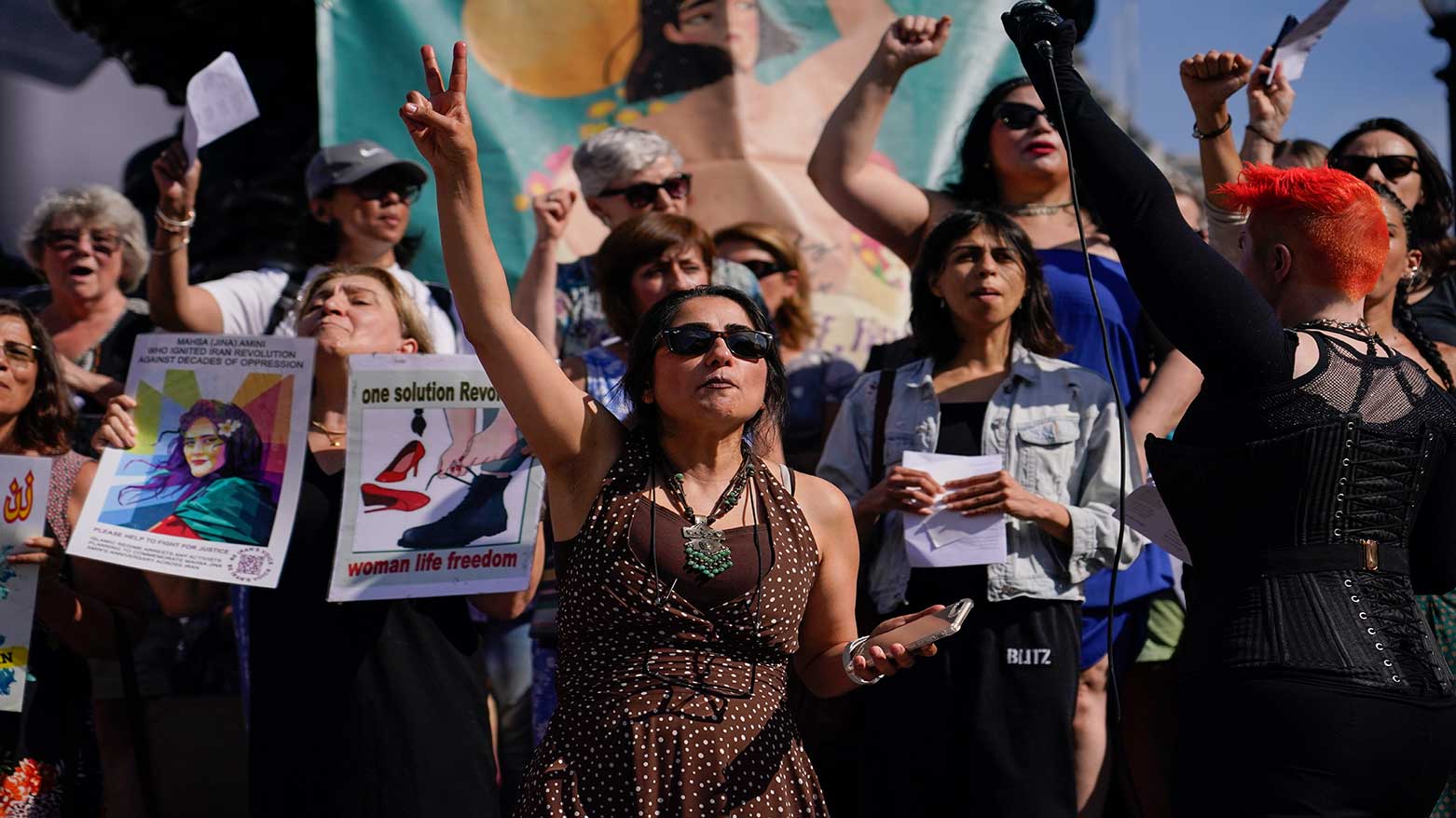Iran Carries Out Death Sentence Over Security Officer’s Killing During 2022 Unrest
The judiciary’s Mizan Online outlet reported that Mehran Bahramian was among a group of assailants who opened fire on a vehicle transporting security personnel in the central city of Semirom, Isfahan province, on December 31, 2022.

ERBIL (Kurdistan24) — Iranian authorities on Saturday executed a man convicted of involvement in a deadly armed attack on security forces during the mass protests that erupted across the country in 2022.
The judiciary’s Mizan Online outlet reported that Mehran Bahramian was among a group of assailants who opened fire on a vehicle transporting security personnel in the central city of Semirom, Isfahan province, on December 31, 2022. The assault killed officer Mohsen Rezaei and left others wounded.
Bahramian was sentenced to death by the Revolutionary Court of Isfahan on charges of moharebeh — or “waging war against God” — for his role in the shooting and for allegedly encouraging attacks against state institutions.
The Supreme Court upheld the verdict, and his execution was carried out in the early hours of Saturday morning. Authorities described him as a “thug.”
The attack took place at the height of nationwide demonstrations triggered by the death of Mahsa Amini, a 22-year-old Iranian Kurd who died in police custody in September 2022 after being detained by the morality police for an alleged violation of Iran’s mandatory dress code for women.
Her death sparked the largest wave of protests Iran had seen in years, with demands rapidly evolving from calls for greater freedoms to outright rejection of the Islamic Republic’s rule.
The unrest following Amini’s death lasted for months, spreading across dozens of cities and provinces. Security forces responded with what international observers, including the United Nations, described as a violent crackdown. According to human rights groups, hundreds of protesters were killed, including children and women, while thousands were detained.
Since then, Iranian courts have handed down a series of harsh sentences, including death penalties, against those accused of attacking security forces or government property during the protests. In June 2023, Abbas Kurkuri was executed after being convicted of killing seven people during the unrest.
Rights groups have repeatedly condemned Iran’s use of capital punishment as a tool of political repression. Amnesty International and Human Rights Watch have documented patterns of unfair trials, coerced confessions, and the extensive use of charges such as moharebeh to silence dissent.
According to human rights groups, including Amnesty International, Iran is consistently ranked as the world’s second-most prolific executioner after China, with executions spiking in recent years, particularly against protesters, ethnic minorities, and individuals convicted of drug-related offenses.
The Iranian government, however, defends its use of the death penalty, insisting it is necessary to preserve order and deter violence against state personnel. Officials frame executions as a warning to those who, in their view, threaten the country’s stability and Islamic values.
Observers note that the execution of Bahramian underscores Tehran’s determination to close the chapter on the 2022 protests through strict judicial measures, even as anger over social restrictions and political repression continues to simmer beneath the surface.